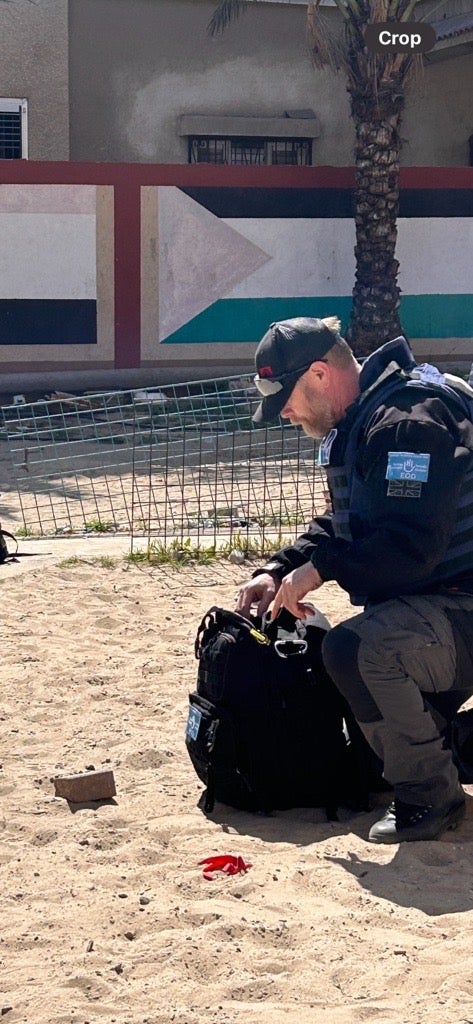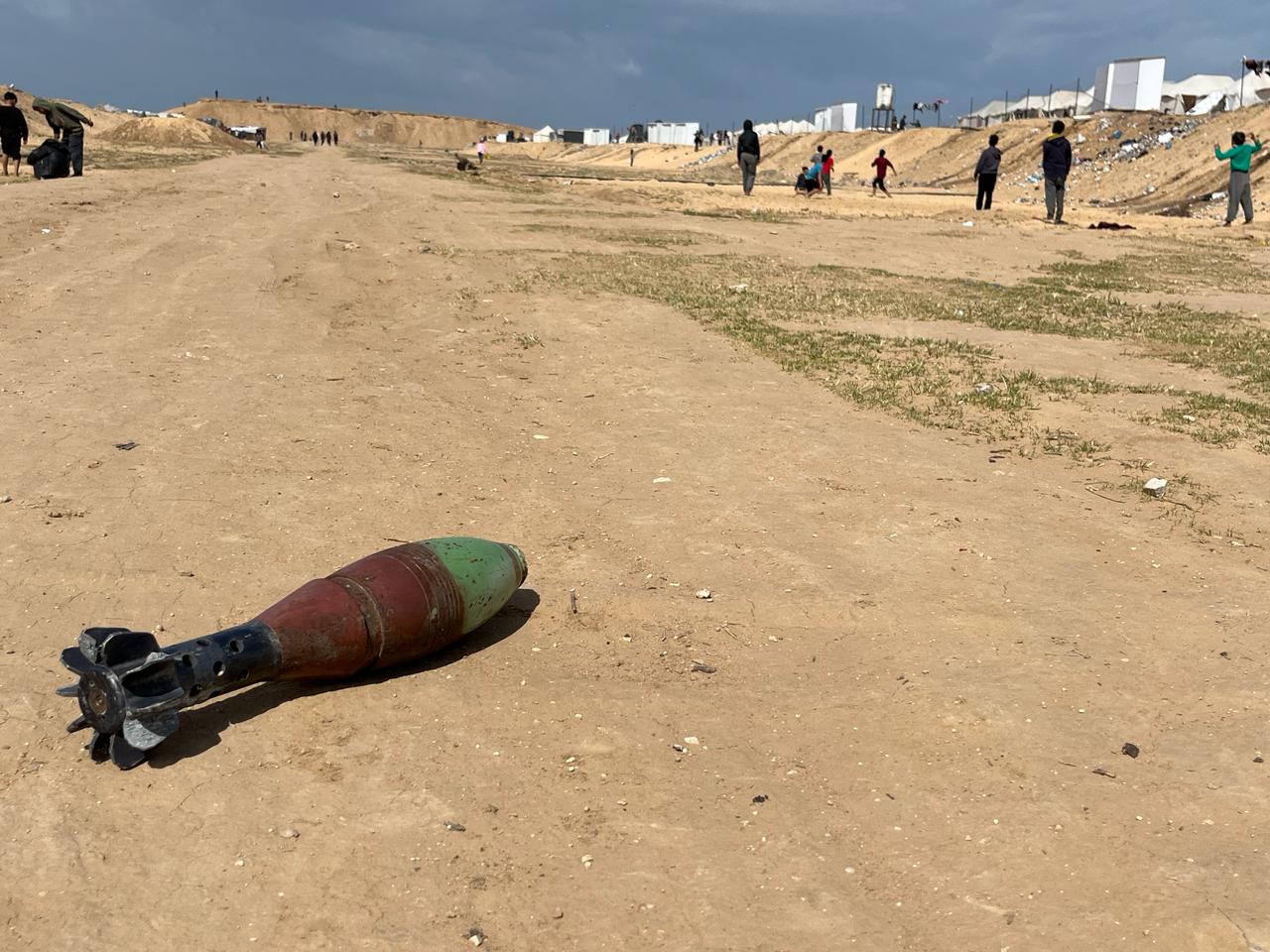‘Worst humanitarian crisis I’ve seen’: Army explosives expert describes dire conditions in Gaza
Exclusive: Gary Toombs warns of residents of Gaza ‘on the brink of famine’

Your support helps us to tell the story
From reproductive rights to climate change to Big Tech, The Independent is on the ground when the story is developing. Whether it's investigating the financials of Elon Musk's pro-Trump PAC or producing our latest documentary, 'The A Word', which shines a light on the American women fighting for reproductive rights, we know how important it is to parse out the facts from the messaging.
At such a critical moment in US history, we need reporters on the ground. Your donation allows us to keep sending journalists to speak to both sides of the story.
The Independent is trusted by Americans across the entire political spectrum. And unlike many other quality news outlets, we choose not to lock Americans out of our reporting and analysis with paywalls. We believe quality journalism should be available to everyone, paid for by those who can afford it.
Your support makes all the difference.A former British Army explosives expert has said that in his 30-year career, he has never seen a conflict zone with the level of destruction and humanitarian suffering that he has witnessed in Gaza.
Gary Toombs spent three weeks in the embattled enclave to locate unexploded bombs in Gaza, which has been struck by an estimated 45,000 explosive devices during the first 89 days of conflict between Israel and Hamas, according to the media office in Gaza.
The 51-year-old told The Independent that a ceasefire was vital for humanitarian reasons, but also to ensure that unexploded devices can be safely de-armed to ensure no further civilian deaths.
On his trip with colleague Simon Elmont, also an explosives expert, he said they already witnessed the severe injuries these unexplosive devices can inflict on children, who misunderstand the danger.
The duo work for the charity Humanity & Inclusion, which operates in conflict zones, and spent their weeks in the region logging unexploded bombs and mines and reporting their findings to the United Nations Mine Action Service (UNMAS).

Mr Toombs says: “The situation remains incredibly complex and it’s fraught with challenges. In many of the areas we went to people are on the brink of famine. There is food available on the streets but it’s so expensive and unaffordable for the majority of residents.
“Fresh food is very difficult to come by so it’s canned and tinned food. The people that we spoke to have lost everything, they have resorted to making these makeshift camps and they are simply surviving amidst the trauma and the fear.
“I think it was quite evident they are extremely hungry, tired and scared. Law and order has disintegrated. There is what’s known as community vigilante groups, which are kind of keeping the peace.
“The existing police that were there have been targeted, so again they are not on the streets anymore so... communities have set up these security groups armed with machetes, knives and sticks and they are trying to protect the food convoys when they come over the Rafah crossing.
“And keep some form of law and order in the communities themselves.”

Mr Toombs began his career working as a bomb disposal expert for the British Army, before later working for humanitarian organisations as an explosives ordnance expert.
He has worked in some of the toughest conflict regions on the planet, with time spent in Syria, Bosnia, Iraq, Yemen and Ukraine, but said the situation in Gaza is the most severe he has witnessed.
“I’ve operated in Mosul, in Raqqa, but I have not seen a level of destruction and humanitarian need like I have in Gaza,” he says.
Explosive ordnances that have not blown up, such as large aircraft bombs or missiles, were a problem before Hamas’s attack at a music festival on 7 October, but are now significantly worse after Israel’s bombardment of Gaza since, says Mr Toombs.
“The issue now is there is a lot of destruction and so they almost disappear into the dust and the debris of the battlefield. We did see them, they are in buildings and on the streets, they are in the rubble. And they pose an almost invisible but direct threat to people’s safety, he says.

“We have seen evidence of mainly children being injured from these explosive remnants of war. While I was there two young children were injured. One had a traumatic amputation of the hand and abdominal injuries, and the other, a young girl, had facial and abdominal fragmentation injuries.
“It is a real threat and it complicates daily life and is hindering the delivery of humanitarian aid delivery and possible reconstruction”.
A spokesperson for Humanity and Inclusion (HI), says: “HI continues to be alarmed by the very high number of civilian victims, the lack of safe humanitarian access and the limited number of trucks being able to enter the Gaza strip daily.
“In northern Gaza, the situation has reached extreme levels, with heartbreaking accounts of civilians, including infants, succumbing to complications due to malnutrition.
“Along with more than 800 organisations, HI is calling for an immediate ceasefire to put an end to this unbearable situation and ensure the provision of humanitarian assistance to the affected population.”
Join our commenting forum
Join thought-provoking conversations, follow other Independent readers and see their replies
0Comments